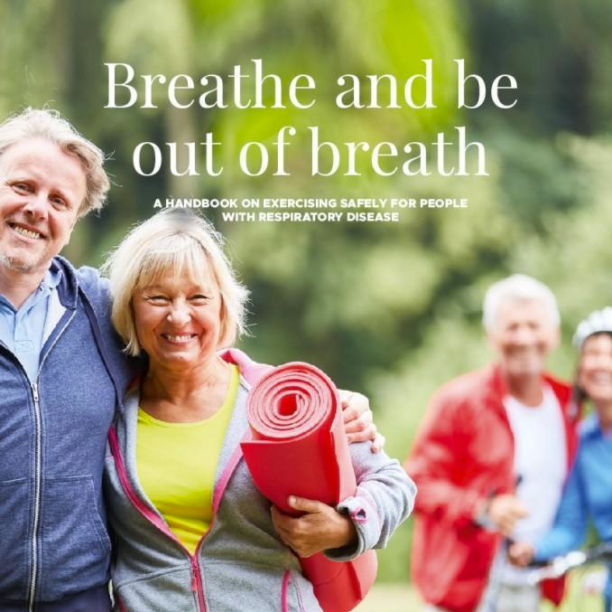The most important thing is to exercise regularly to the point that you get out of breath.
Related content
Other topics that may interest you
Water sports
Some people with respiratory diseases enjoy water sports because of the warm and humid air in swimming halls.
The pressure of water facilitates breathing and gives nice resistance. Some people may, however, find water resistance unpleasant.
Water sports are not recommended for people suffering from lung diseases that make them susceptible to infections.
Stick workouts
The advantage of stick workouts is that it is easy to get started and vary the exercises. Stick workouts help improve the mobility of the thoracic spine and make breathing more efficient.
The stick is not necessary, but it helps you do the exercises the right way. You can use an exercise stick or a broomstick.
Hold the stick lightly, relax your shoulders, and breathe evenly during the exercises.
For guided stick workouts, visit the YouTube channel of the Organisation for Respiratory Health.
The exercises are suitable for people of all ages and fitness levels.
The video walks you through ten effective stick exercises for improving the mobility of the thoracic spine and increasing leg muscle strength.
Endurance exercise
Effective forms of endurance exercise include:
- brisk walking
- Nordic walking
- swimming
- cycling
- dancing
- cross-country skiing
- jogging.
With walking, you should aim for 10,000 steps per day. Research has shown that people with COPD can prolong their lives by several years just by walking 6,000 steps each day.
Exercise in nature
In Finland, nature surrounds us all. We do not need to make enormous efforts to go out in nature.
Spending time in nature has positive effects on our well-being. Exercising in nature is vital to people with respiratory diseases: spending time in nature boosts the immune system by stimulating the body’s own defence system.
Our immune systems need constant stimuli to function effectively. When we put our hands in the dirt or pick berries and mushrooms, we are exposed to natural microbes. This helps protect us against infections.
People with reduced mobility can also go out in nature, with the help of assistive devices, for example. Assistive devices can be picked up from local assistive device centres.
Nature is known to have several positive effects on people’s well-being. This is why natural environments can be regarded as the pharmacies of nature.
Spending time in nature:
- reduces stress
- lowers blood pressure and heart rate
- improves concentration
- boosts the immune system
- eases pain
- improves the quality of sleep
- improves mood.

Breathe and get out of breath
Read more in the Organisation for Respiratory Health handbook on breathing and exercise.